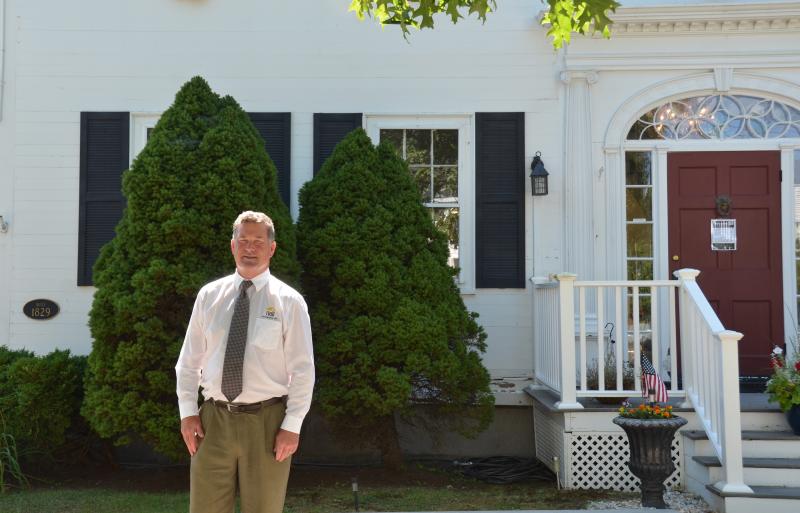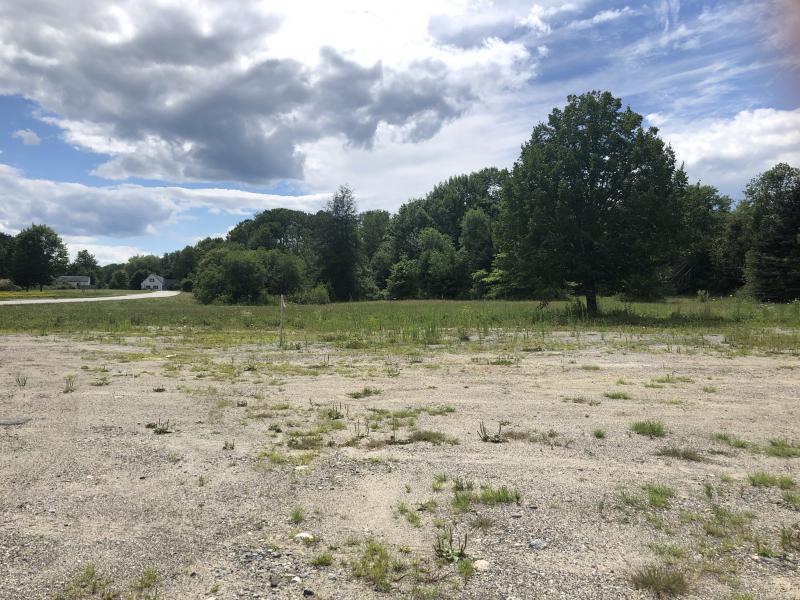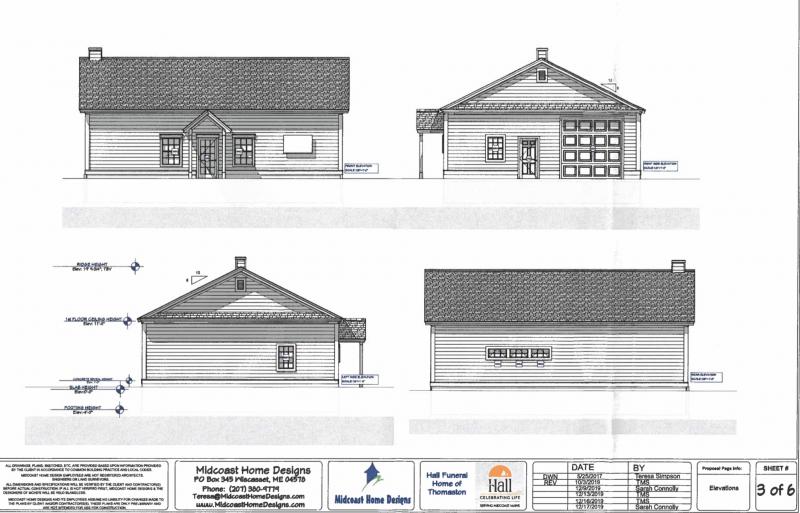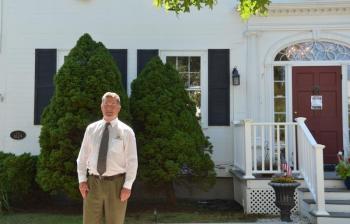Funeral home moves forward with Thomaston crematory plans, seeks voter approval for land lease
THOMASTON — Like his father before him, Michael Hall, president of Hall Funeral Home and Midcoast Crematory, Inc., knows how families want to prepare their loved ones for burial, and how much cultural practices have changed over the past 40 years. And in Maine, the overriding preference now is to cremate bodies.
Nationally, 53.5 percent of the deceased are cremated, according to the National Funeral Directors Association. Just five years ago, more families were choosing to bury their dead; however, tables shifted in 2015.
Maine, however, like Vermont and New Hampshire, surpassed that mark much earlier, and Maine’s current cremation rate is more than 76 percent, according to the Cremation Association of North America.
There are now 14 crematoria, from Calais to Auburn to Saco, tucked in independently or with funeral homes in downtowns and rural areas. If Thomaston gives its final approval to a local business proposal, the state will add one more crematory to its list.
Hall Funeral Home, in Thomaston, has introduced the town to the idea of building a crematory on Annabelle Lane, on the road to the Public Works headquarters and close by the Village Cemetery. Four years ago, the process began when Hall approached the Cemetery Committee with the proposal.
Thomaston voters approved in 2019 a warrant article allowing the town to seek bids for crematory siting at 32 Annabelle Lane, and on June 16, 2020, the Planning Board voted to approve a conditional use permit to Midcoast Crematory, Inc., as operated by Michael Hall.
The Planning Board stipulated that there be no deliveries between 6 p.m. and 6 a.m.; that delivery of propane occur during business hours; that the dark night sky be protected with appropriate lighting; and that there be screening of the leased property from Erin Street.
Since then, a Thomaston resident, Nancy Wood, filed an appeal of that permit with the town, citing pollution and noise as her prime concerns with the crematorium.
Wood had cited in her appeal the air quality emissions associated with cremating corpses. (Read Thomaston citizen appeals Planning Board conditional use approval of crematorium project).
The Appeals Board hearing is scheduled for Aug. 25, at the Thomaston Town Office building.
Meanwhile, the Maine Department of Environmental Protection had issued an air quality license for the crematorium, with the requirement that an annual report be submitted.
And, on September 15, at annual Town Meeting, Thomaston voters will consider allowing a 50-year lease be signed with Midcoast Crematory, Inc., with requisite payments of $500 each month.
Hall is hoping the Appeals Board upholds the Planning Board June approval, and that the town agrees to the lease arrangement.
He describes the trend toward cremation as ongoing, for many reasons.
Costs are lower than with direct burial, and spiritual and religious beliefs have changed.
With cremation, flar-flung families have more time to to gather for services, there is less demand for graveyard space, and families are able to scatter ashes in multiple locations, a growing trend in itself.
While the changing market in the funeral business has called for more cremations, Midcoast funeral homes still regularly transport bodies to Gardiner or Bangor, to crematoria there.
“We had been looking at this for the past 10 years, and wanted to have a local service,” said Hall. “It makes sense, economically.”
With its own crematory, Hall Funeral Home would never have a person, “leave our care,” or be transferred to a third party, he said.
“With cremation, there is a lot of liability,” he said, and that includes ensuring the identity of the body. “By having our own crematory, we continue our own internal standards. And, we can serve families better.”
Hall’s Funeral Home has been in business for 60 years, and over the past 30 years, the demand for cremation has increased from 30 percent to 70 percent, Hall said.
Researching potential retorts (the incinerator chamber where bodies are cremated), Hall flew to Florida and met with two manufacturers. He eventually decided to purchase equipment from B&L Cremation Systems, based in Largo.
B&L already had a presence in Maine, with 29 human and pet crematoria. That significant state presence was one of the deciding factors, said Hall.
If all the steps fall into place — the Appeals Board upholds the Planning Board approval, the voters approve the terms of the longterm lease, and the town issues him a building permit — then Hall anticipates breaking ground at Annabelle Ave in October and completing construction in January.
Hall Funeral Home will train five personnel, including Mike Hall, to operate the retort.
“There is a science behind the combustion,” he said, and governs how different bodies, their size and weight, are cremated, and in which order.
“In the old days, my father and I used to go to Saco, and there were knobs and air controls, etc.,” he said.
Now, the controls are automated and software driven to consistently monitor stack gases, prevent visible emissions and noise, and control the cremation sequence.
Hall, whose great-grandparents are buried in the Village Cemetery, and who grew up in Waldoboro, said he is sensitive to neighbor concerns. When he first asked the Thomaston Cemetery Committee about siting a crematorium in town and leasing land, he looked a parcel closer to the road.
But a neighbor objected to the location, so he and the committee looked at the Annabelle Lane parcel, which is closer to the Public Works headquarters.
“We are going to pay for the water, electrical and sewer infrastructure, and pay property taxes,” he said.
Hopefully, he said, the town will direct that revenue to the cemetery lines in the municipal budget.
Like many Maine towns, Thomaston has cemetery trusts sitting in portfolios, which help fund the towns with annual interest income earned off of the investments, he said.
“With interest rates so low, though, a lot of cemeteries don’t have the revenue now,” he said. “This is an opportunity to help offset some costs and provide revenue for the town and citizens.”
Reach Editorial Director Lynda Clancy at lyndaclancy@penbaypilot.com; 207-706-6657
Event Date
Address
United States

































